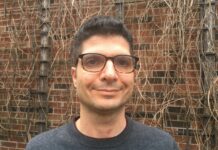“Making a Silk Purse Out of a Sow’s Ear”: Erick Turner on How Publication...
Ayurdhi Dhar interviews Erick Turner about publication bias in antidepressant trials, compromised psychotherapeutic research, and a culture of journal worship.
Antidepressants Have Destroyed My Sexual Function and Range of Emotions
In 2012, in a period of low mood and anxiety, my GP prescribed an antidepressant. Little did I know that this would derail my life.
How Should Psychedelic Medicine Handle “Flashbacks”?
Hallucinogen Persisting Perception Disorder (HPPD) is one of the after-effects neglected amid the rapid march of the psychedelic renaissance. But is the impulse to pathologise these perceptual changes helpful?
Risk of Depression Spikes When Kids Take Ritalin
Risk of depression increased when children were taking methylphenidate for ADHD, but once they stopped taking the drug, depression risk dropped to normal levels.
Psychiatry’s Cycle of Ignorance and Reinvention: An Interview with Owen Whooley
Ayurdhi Dhar interviews sociologist Owen Whooley about psychiatry's stubborn perseverance in the face of recent DSM embarrassments and the failures of the biomedical model.
Mania or Marijuana?
Is marijuana to blame for my mental health issues? Strange things started happening in my mind once I started using the medical-grade weed.
The Impact the DSM Has Had On All of Us: An interview with Sarah...
"You're not going to sell many drugs by saying your problem is your life experiences. It's far more effective to say your problem is in the brain. It's an imbalance, we can correct that imbalance, just take our product."
The Anatomy of Anxiety: An Interview With Ellen Vora
Dr. Ellen Vora, author of 'The Anatomy of Anxiety', joins us to discuss trauma, grief, functional medicine and more.
Polydrugged With 12 Different Drugs… For Insomnia
Before my nightmare with psychiatric medication began, my life was full and happy. But since being prescribed 12 different psychiatric drugs in one year, I have become bedridden, ill and jobless.
Giovanni Fava – A Different Psychiatry is Possible
In this podcast, we hear from the renowned clinician and researcher Dr. Giovanni Fava about his latest book entitled “Discontinuing Antidepressant Medications”.
Psychiatry Textbooks Are Filled with Errors and Propaganda
The coming generations of healthcare professionals are being taught information that is incorrect, to the detriment of their patients.
Spoilation: What Becomes of the Forcibly Drugged?
I have been forcibly drugged for over forty years now. The dose of neuroleptics I am forced to take will probably kill me.
Major Depression: The “Chemical Imbalance” Pillar Is Crumbling—Is the Genetics Pillar Next?
A more detailed critical evaluation of molecular genetic studies, which have failed to discover genes shown to cause depression.
Inside a Forensic Psychiatry Unit: Here’s How to Survive
Sean Gunderson, who was detained by the criminal justice system for 17 years after receiving an NGRI verdict, documents the life of a forensic psychiatry inmate.
Combatting Structural Racism and Classism in Psychiatry: An Interview with Helena Hansen
MIA interviews psychiatrist and anthropologist Helena Hansen about bringing structural competency to psychiatry while rebuilding communities.
The Core Error of Psychiatrists and Psychologists: Certainty about “Consensus Reality”
Mental health professionals are selected and socialized to accept consensus reality and see a lack of adjustment to it as "mental illness."
Emotional CPR: Heart-Centered Peer Support
Two National Empowerment Center leaders discuss eCPR, a process for helping youth—or anyone—through an emotional crisis using three simple steps.
Point/Counterpoint: What Is the Importance of Nassir Ghaemi’s Conclusion that Psychiatric Drugs Do Not...
A dialogue between Jim Phelps and Robert Whitaker about Nassir Ghaemi's latest article, which concluded that psychiatric drugs, except for lithium, do not provide a long-term benefit.
Responsibility Without Blame in Therapeutic Communities: Interview with Philosopher Hanna Pickard
Hanna Pickard on the elusive middle ground between personal responsibility and systemic factors in our understandings of addiction.
Breaking the Cycle: How I Overcame Intergenerational Trauma and Became a Peer Advocate
How did that young Puerto Rican girl who very much disliked seeing a therapist when locked up in the juvenile system end up working in the mental health field as an adult?
Understanding the Youth Mental Health Crisis: An Interview with Elia Abi-Jaoude
The child psychiatrist talks about the importance of seeing the big picture and why parents shouldn't "be afraid if their kid is in distress."
Remembering Don Weitz, 1930-2021
My hero, mentor, and very dear friend Don Weitz died comfortably, in his home, on the afternoon of September 1, attended by his loving twin children, Lisa and Mark.
Inside a Forensic Psychiatry Unit: Earning the Right to Sleep on the Floor
Life in the DC was far too complicated for me to be able to just listen to my body and sleep on a thick yoga mat placed on the floor to alleviate my severe back pain.
My Partner Abused Me. I Was the One Locked Up
Every day, psychiatrists in Australia’s mental health system write reports denying the sanity of women who are victims of sexual assault, rape, or domestic violence. I know: I was one of them.
Dismissing the “Human Experience”: College Students Feel Unseen by the Medical Model of Mental...
In conversations with college students and recent graduates from across the country and around the world, they described feeling dismissed by views of mental health that narrow their experiences to individual medical problems.

































